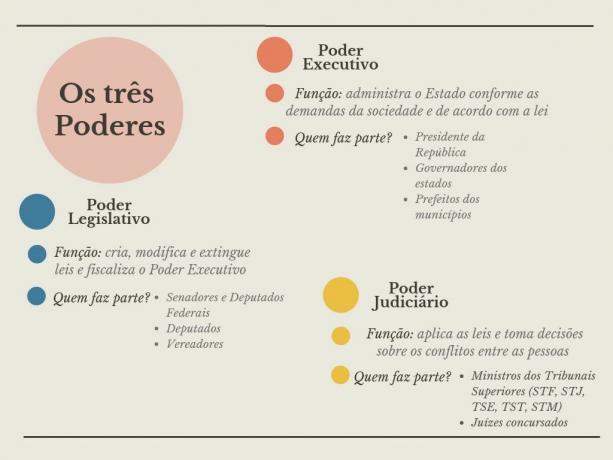Positive law consists of the set of all rules and laws that govern social life and institutions in a given place and for a certain period of time. The Federal Constitution is an example of positive law, because like other laws and written codes, it serves as a discipline for the ordering of a society.
Also known as juspositivism, the positive law is changeable, since the laws that govern the functioning of a given nation can be changed over time, taking into account factors that match the reality experienced by this society specific.
O legal positivism it emerged in the middle of the 19th century in Europe, as a current that defended the law as the law of only value and emanated from the State. This thought was opposed to the model of natural law, who believed in the idea of universal justice based on the laws of nature, the laws of God (from the perspective of the Church) or human reason (Enlightenment).
For the positivists, the law is a product of the Law that acts as a mechanism of social organization, based on a "Social Contract". According to positive doctrines, norms are just because they are valid. This concept is opposed to the thinking of jusnaturalist doctrines, which believe that the norms are valid because they are fair, otherwise there should be no validity.
After World War II and the results observed from the Nazi and Fascist regimes, it was noted, however, the need to have the principle of morality in Law. Legal laws should not only depend on arbitrary decisions by politicians, but these should be based on morals, ethics and other norms that are provided for by natural law.
See also: meaning of Positivism.
natural law and positive law
Natural Law consists of an abstract idea of Law, as a set of universal, natural norms and rules that belong to a "higher" justice. In other words, the principles of natural law must stand out in comparison with positive law.
Natural law is universal and extends to all human beings, regardless of nationality or the period in which they have lived. The right to life and liberty are examples of natural rights, as they must be granted to all individuals.
Thus, it can be concluded that the Human rights they are formed by some of the basic principles of what would be natural law.
know more about Human rights.
Unlike the positive law that emanates from the decisions of the State, natural law derives from the essence of a nature, whether of religious origin (the will of God) or the rationality of human beings, by example.
Positive law has a formal, temporal and territorial character. Laws are hierarchically organized, arising from the political will of the nation (social pact), and emanating from the State. Furthermore, laws can be revocable, variable and changeable.
Natural Law, in turn, has a universal character and is independent of human will. Its laws are eternal, immutable and irrevocable. They do not develop from historical phenomena or characteristics.
Learn more about the meaning of natural law It's from jusnaturalism.

